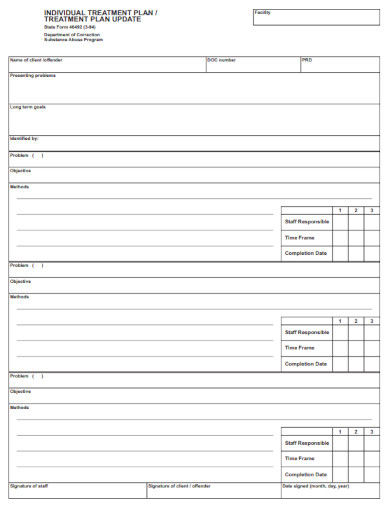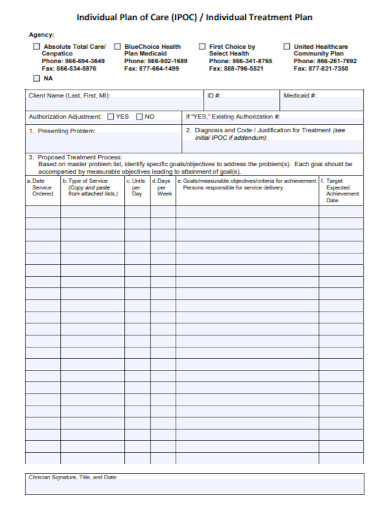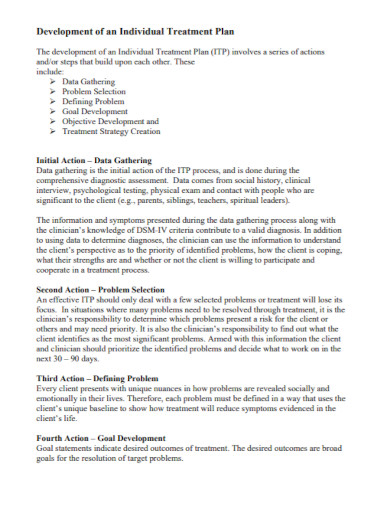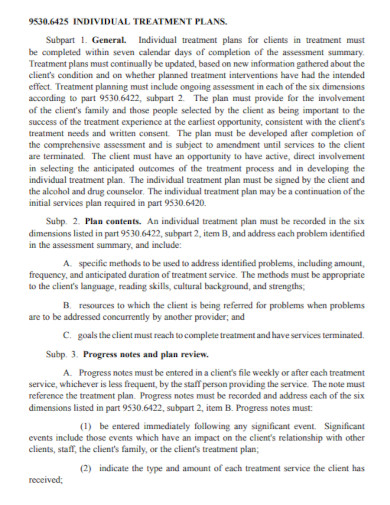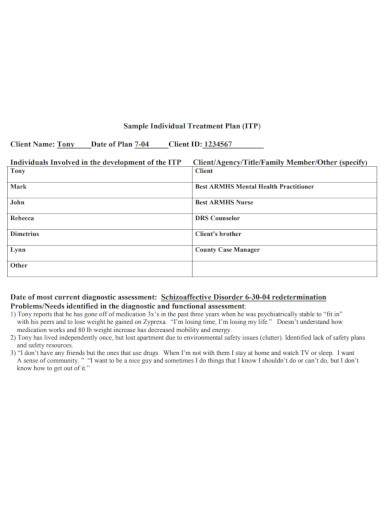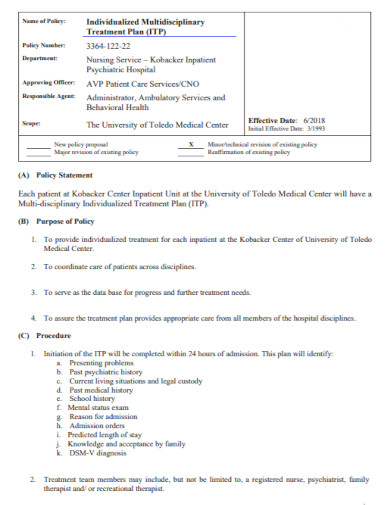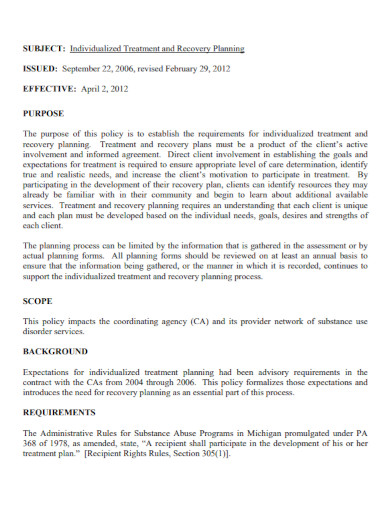10+ Individual Treatment Plan Examples to Download
When someone requires help, especially from a professional, that person should have to undergo treatment or help as early as possible. This could span from skin treatment, to hospice care, and a lot more. To ensure the person’s success in the treatment, they will require a vigorous individual treatment plan to help them.
10+ Individual Treatment Plan Examples
1. Individual Treatment Plan Template

2. Standard Individual Treatment Plan
3. Individual Treatment Plan in PDF
4. Individualized Treatment Plan
5. Development of an Individual Treatment Plan
6. Basic Individual Treatment Plan
7. General Individual Treatment Plan
8. Sample Individual Treatment Plan
9. Individual Multidisciplinary Treatment Plan
10. Patient’s Individual Treatment Plan
11. Individual Treatment and Recovery Plan
What Is Individual Treatment Plan
An individual treatment plan is a curated document that details the planned treatment process that the individual patient will go through. This will include the process, the treatment dates, the target date and accomplishments, and the type of treatment the person will go through. An individual treatment plan will create a structure for the treatment to make sure the patient will go through a successful recovery.
How to Create an Individual Treatment Plan
A good individual treatment plan can go a long way on the road to an individual’s recovery. There are many types of individual treatment plans like an individual addiction treatment plan or an individual treatment plan for someone’s mental health. If you are still confused as to what an individual treatment plan should look like, then I would suggest using the individual treatment plan examples and samples on the list above.
1.) List Out the Client’s Name
Begin by writing down the name of the client on the top portion of the individual treatment plan. You may also write down the name of the doctor presiding over the treatment of the individual, and the start date of the treatment.
2.) Write Down the Problem, Sickness, or Issue
After writing down the name of the client or patient, you must now write down the problem, sickness, or issue that the individual treatment plan is tackling. Most of the time, the treatment will only tackle one problem, sickness, or issue at a time, but if multiple things are being treated, you can write all of them down in the appropriate field.
3.) Put Down the Treatment Program
Then, you must write down the type of treatment program the patient is going to have in the appropriate field. Afterward, you will now write the specific treatments and sessions the treatment program will entail into the appropriate boxes on the list below.
4.) List Down the Treatment Dates, Duration, and Goals
When you have completed this, you must now list down the treatment dates, the duration of the treatment, and the goal of said treatment under the appropriate fields. Do this for every treatment listed in the individual treatment plan.
FAQs
What is the impact of an individual treatment plan?
The plan can ensure that the treatment will have structure and guidance. This is because structure and guidance can help improve the chances of success of the treatment plan. The impact of the plan will not ensure the success of the treatment but will lessen the risk of failure in the treatment.
When is the best time to create an individual treatment plan?
The best time to create an individual treatment plan is before the treatment will be scheduled. This will need to be made by the presiding expert with the guidance and approval of the patient’s guardian.
Can I make my treatment plan for my loved one?
No, you shouldn’t make your treatment plan unless you have knowledge and experience in the treatment used to help your loved one. If you’re a doctor or have knowledge and experience of the treatment, you may create and conduct the treatment, but you must ensure that act professionally and accordingly when treating the patient.
An individual treatment plan can make or break the viability and success of the treatment. The contents of the individual treatment plan will help ensure the structure of the treatment, but if done poorly, it may break the treatment. In conclusion, the right usage of an individual treatment plan will help ensure the treatment be on an upward trend.


![10+ Individual Treatment Plan Examples [ Patient's, Multidisciplinary, Skin Care ]](https://images.examples.com/wp-content/uploads/2021/12/10-Individual-Treatment-Plan-Examples-Patients-Multidisciplinary-Skin-Care-.jpg)
